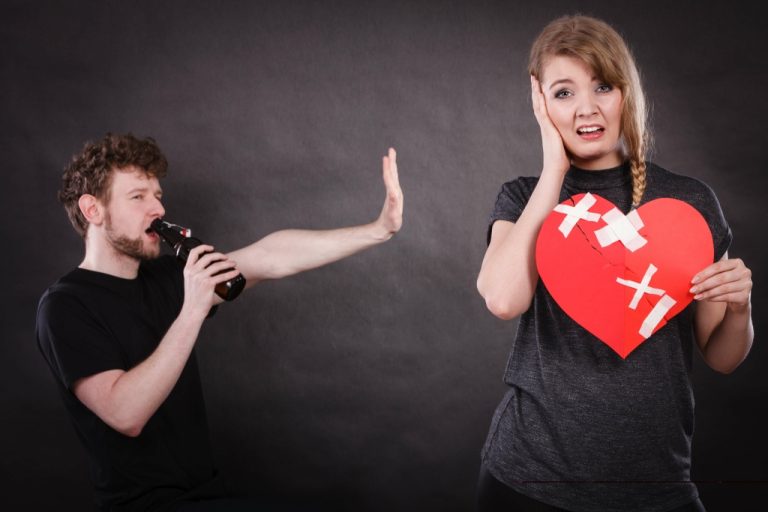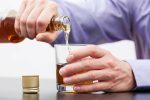If you don’t want to deal with dehydration from alcohol, the best (and most obvious) preventative measure is not to drink alcohol. Lastly, dehydration can delay muscle recovery after physical activity. When muscles are dehydrated, they are more susceptible to damage and injury, which can lead to delayed recovery and increased muscle soreness. Dehydration can reduce muscle endurance and performance, making it more challenging to sustain physical activity for an extended period.

Does alcohol cause dehydration?
There’s also the fact that most people are pretty sedentary on a flight, rarely leaving their seat. When you do get up, you may find you’re feeling the effects of alcohol more than expected. We reached out to some experts in medicine and nutrition, and asked if alcoholic beverages were a good idea while flying. Here’s what we found out about how alcohol affects your body while you’re up in the air. Ordering beer, wine or a cocktail while flying is a common move. For some, having an alcoholic beverage on the plane is a travel day essential to relax, take the edge off, celebrate a vacation or even to fall asleep on a long flight.
- Remember that list of things that makes alcohol-related dehydration worse?
- Alcohol suppresses the hormone vasopressin, which governs how much you urinate.
- The best way to ensure proper hydration is to drink plenty of water.
- Any alcoholic drink, whether beer, wine, vodka, whiskey, rum, gin, or tequila, will inhibit the body’s production of vasopressin, which will cause you to pee more and increase your chances of becoming dehydrated.
Stick to drinks with lower alcohol content

The frequency and duration of drinking can also impact the dehydrating effects of alcohol. The effects of dehydration, moderate alcohol consumption, and rehydration on cognitive functions. Some people may find that drinking water or sports drinks can help to alleviate the symptoms of a hangover, while others may prefer to rest and allow their body to recover naturally. When you’re feeling a hangover, it’s important to explore the root cause. There’s less air pressure, so alcohol enters your bloodstream even more rapidly. If you’re drinking at altitude, you should probably start out with less alcohol than usual.
- Sipping on one whisky all evening will likely mean you ingest less alcohol overall than three or four standard glasses of wine.
- Proper hydration is essential for the body to function correctly.
- Some cocktails can take a toll on your hydration because of additional ingredients.
- Stoutz emphasizes the importance of hydrating before and during drinking, which can minimize how dehydrated you become.
Symptoms of Dehydration
Energy drinks may contain a combination of dehydrating ingredients. They generally contain high levels of caffeine and sugar and may contain other added ingredients that stimulate the kidneys and act as a diuretic. If a person does not get enough hydration alongside their alcohol intake, the alcohol may cause dehydration. Generally, the higher the alcohol content of a beverage, the more dehydrating it can be. How long it takes to rehydrate after drinking depends on how much alcohol you have consumed and how much fluid volume and electrolytes your body lost. Drinks with higher alcohol content, including vodka, whiskey, and rum, can have a stronger dehydrating effect than beverages with lower alcohol content, such as beer or wine.

Moderate Dehydration
It’s important to stay hydrated while consuming alcohol and to drink water before, during, and after drinking alcohol to prevent dehydration. First, caffeine does have https://edutechinsider.com/top-5-advantages-of-staying-in-a-sober-living-house/ a diuretic effect, which means it causes you to urinate more. However, the good news is that the fluid you take in from your morning cup of coffee offsets this effect.
Blood Orange
For example, during times of illness, your water needs are increased. For most healthy adults, the National Academy of Medicine recommends consuming 13 cups for men and 9 cups for women daily. Polyuria (excess urine) and polydipsia (excess thirst) are two symptoms of diabetes. They occur when there is a disruption in the metabolism of sugar (glucose).
Dehydration Causes
If you drink alcohol on a hot day, your body won’t be able to adjust and control your internal temperature effectively, which increases the risk of heat stroke. While it can be tempting to consume alcohol on a hot summer day, the combination of high temperatures and alcohol can cause considerable fluid loss and dehydration. Research published in Circulation found that potassium mitigates the adverse effects of alcohol on cardiovascular function and reduces the risk of high blood pressure. A high-potassium electrolyte powder containing at least 1,000 milligrams of potassium can help counteract fluid loss caused by alcohol and reduce the risk of having a hangover.
Flight Attendants Share What They Eat To Avoid Digestive Problems In The Air
Fever can increase the risk of dehydration by increasing fluid loss. Alcohol suppresses a hormone produced by the brain called vasopressin, which tells the kidneys to retain fluid. Instead of retaining fluid, the body will increase urination and lose fluids. This can cause symptoms of Sober House dehydration such as thirst, fatigue, and headache. For example, diuretics are used when you have swelling or edema. Other types of medications prescribed to lower blood pressure and blood sugar can increase the risk of dehydration, especially when you are not drinking enough fluids.
Stoutz says the best way to hydrate is to alternate alcohol and water while you’re drinking. While being hydrated is important, Pfau points out that if you aren’t properly hydrated prior to drinking, your body’s water content is already low, which means you will urinate less than you would otherwise. Binge drinking is when a person consumes an excessive amount of alcohol within a short period of time. This equates to drinking five or more drinks within 2 hours for males and four or more drinks within 2 hours for females. Alcohol is a diuretic and therefore causes excessive urination. It is important to note that having higher blood sugar from consuming very sugary drinks may encourage the body to eliminate the excess sugar but may not necessarily cause dehydration.
